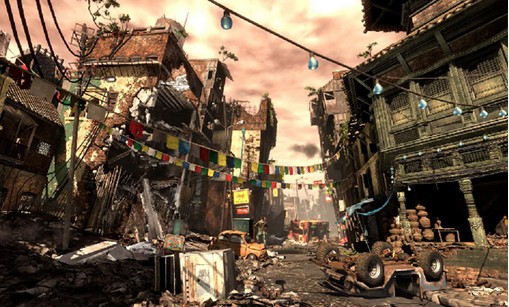People play video games for lots of reasons; some do it for the thrill of the win – the rush of triumph during a game of Team Deathmatch or a matchup in a game of Madden .
For others, gaming is much more about immersing themselves into a different world, and experiencing things that simply aren’t possible in the ‘real’ world.
It’s this latter group that we’ll be asking the question, how important is a good story to a video game and can it be the element that makes or breaks it?
Arcade origins
Video games certainly didn’t start out with a focus on storyline. In fact, the earliest video games like Pong and Space Invaders had absolutely no story whatsoever (unless you count setting, in which case they’re still paper thin).
But this isn’t a fault of the game, rather it’s a sign of the times. People developing the first games didn’t think they needed a story, they simply needed to be fun. This school of thought went into the arcades too; fighting and racing games soon became all the rage.
They would have settings and scenarios, but no real plot thread or storyline.
Home consoles, RPGs, and point ‘n’ click
It wasn’t until the mid-80s that home consoles became available, and people were able to start playing games on the comfort of their sofa. Developers needed to find ways to make games bigger and better – and a storyline was the perfect way to do this. Let’s not forget that text adventures had been popular since computers were first around, but they were like interactive books.
Taking this concept and applying it to full video games with graphics lead to such titles as the Legend of Zelda on the NES. These role-playing games supplied a scenario and a goal, and allowed you to meet other characters and gain expiation along the way. Narrative in video games was born, and it boomed from there.
The PC has always been a platform that has played host to multiple game types, including the ‘point n click’ games which originated in the 1980s. Games like Lucasarts’ ‘The Dig’ in 1995 took storytelling to a whole new level, and essentially allowed the player to take part in an interactive movie.
Storytelling in modern games
Gaming is a multi-billion dollar industry. That means that the number of games being released has gone up exponentially, and not all of them have a strong focus on storyline. For example, best-selling sports titles like FIFA have absolutely no story, but still sell like hotcakes.
Big shooters like the Call of Duty franchise now offer players a little of both: a short story-based campaign (which is usually fairly run of the mill) and a large multiplayer component.
There are also huge ‘pure’ single player games like The Elder Scrolls V: Skyrim that have fans lining up at midnight to get their copy. A game like Skyrim is heavily story focused, featuring a rich and compelling story that keeps gamers coming back for more.
Fans of such a game don’t expect too many online features, and certainly aren’t aiming to blow up other players.
The final word
The bottom line here is that all gamers are different. Some look for thrills, others for immersion. In the case of the latter group, nothing is more compelling than a juicy story to get stuck into. For the former group, a few minutes of blowing things up or scoring goals will suffice. Essentially, those games that aim to offer a deep and satisfying storyline do indeed live and die by the quality of the scenarios they depict; a 40 hour RPG will be a real slog without an intricate and exciting story.
At the other end of the spectrum, though, games that aim to offer simple visceral entertainment achieve their objectives in a different way, and their audience demands different qualities within the game.
We can’t imagine EA losing any fans if they don’t explain exactly how Rooney ended up playing for Manchester United.
So can a story make or break a game?
Well, in some cases, it certainly can. In others, however, it makes no real difference. The ultimate judge, of course, is the player (and their wallets).






